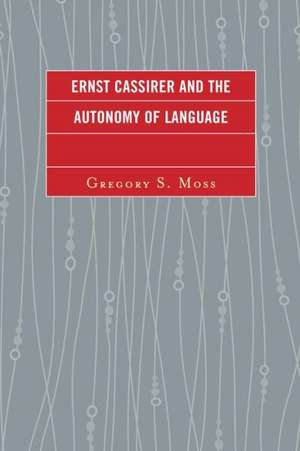Ernst Cassirer and the Autonomy of Language
Autor Gregory S. Mossen Limba Engleză Hardback – 12 noi 2014
Preț: 751.86 lei
Preț vechi: 1029.95 lei
-27% Nou
Puncte Express: 1128
Preț estimativ în valută:
143.86€ • 150.61$ • 119.04£
143.86€ • 150.61$ • 119.04£
Carte tipărită la comandă
Livrare economică 05-19 aprilie
Preluare comenzi: 021 569.72.76
Specificații
ISBN-13: 9780739186220
ISBN-10: 0739186221
Pagini: 274
Dimensiuni: 155 x 231 x 23 mm
Greutate: 0.5 kg
Editura: Rowman & Littlefield
ISBN-10: 0739186221
Pagini: 274
Dimensiuni: 155 x 231 x 23 mm
Greutate: 0.5 kg
Editura: Rowman & Littlefield
Notă biografică
Descriere
Gregory S. Moss examines the central arguments in Ernst Cassirer's first volume of the Philosophy of Symbolic Forms to show how Cassirer defends language as an autonomous cultural form, and how he borrows the concept of the "concrete universal" from G. W. F. Hegel in order to develop a concept of cultural autonomy.
